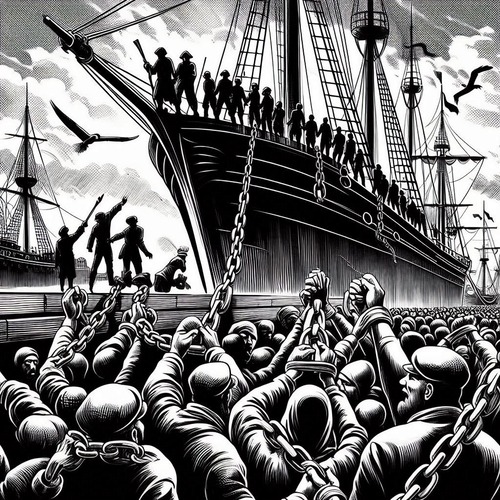What is the Christian Position on Euthanasia?
What is the Christian position on euthanasia and assisted suicide? While there are certainly differing perspectives, the predominant Christian view based on biblical teachings is one of opposition to both euthanasia and assisted suicide. Here’s a detailed examination of the key biblical principles and passages that inform the Christian stance on this issue:
The Sanctity of Human Life Central to the Christian worldview is the belief that human life is sacred because it is a gift from God. In Genesis 1:27 (ESV), we read “So God created man in his own image.” Human beings derive their infinite value and dignity from being made in the image of the Creator. As such, human life is to be cherished, nourished, and protected from conception until natural death. Euthanasia and assisted suicide violate this foundational principle of the sanctity of human life by actively and intentionally ending a life before natural death occurs.
“You shall not murder” (Exodus 20:13 ESV) Christianity’s opposition to euthanasia and assisted suicide also stems from God’s clear commandment against murder in the Ten Commandments. While there is debate over whether euthanasia constitutes murder, many Christians argue intentionally taking an innocent human life through euthanasia or assisted suicide violates this foundational ethical principle. Terminally ill patients facing suffering undoubtedly experience incredible hardship, but Christians would contend alleviating that suffering through actively ending the life is an impermissible violation of the commandment against murder.
The Body as a Temple The apostle Paul instructs Christians, “Or do you not know that your body is a temple of the Holy Spirit within you, whom you have from God? You are not your own, for you were bought with a price. So glorify God in your body” (1 Corinthians 6:19-20 ESV). Many Christians view this teaching as prohibiting euthanasia and assisted suicide, as it would involve desecrating the human body—the temple of God’s Spirit. Just as we shouldn’t defile a church building, Scripture indicates we have a responsibility to honour and protect the body God has given us as His dwelling place. Euthanasia and assisted suicide would violate this principle of valuing the body as God’s temple.
Christ’s Example and Teachings The entire narrative of Christ’s life, death, and resurrection demonstrates the infinite value and dignity of human life—even one experiencing profound suffering. Though He could have avoided the cross, Jesus endured unimaginable torture and suffering for human redemption. This highlights the Christian belief that there can be profound meaning and purpose in suffering. Additionally, Jesus taught against acts of violence and murder (Matthew 5:21-22), with some Christians extending this principle to prohibit intentionally taking one’s own life or the life of another. His emphasis on protecting the vulnerable (Matthew 25:40) has also been applied to opposing euthanasia of defenceless individuals.
Sovereignty Over Life and Death Ultimately, Christians believe life and death are under the sovereign authority of God alone. He is the author and giver of life, and thus only He should determine when a life should end. Scripture depicts both death and healing as flowing from God’s will (Deuteronomy 32:39, Job 1:21). As such, euthanasia and assisted suicide could be viewed as acts of rebellion against God’s sovereignty by usurping His role over the termination of life.
The Christian Call to Care, Not Kill While upholding the sanctity of life, the Bible also emphasizes alleviating suffering through providing compassionate care and pain management—but not through actively assisting in death. The biblical narrative is filled with teachings to love one’s neighbour, care for the vulnerable and hurting, and bring healing to the sick. Medical advancement in palliative care allows suffering to be humanely alleviated without requiring the taking of life. Christians, we believe, are called to a model that promotes care, not killing.
While there are pockets of differing perspectives, this represents the predominant traditional Christian stance against euthanasia and assisted suicide based on biblical principles. Undergirding this position is the fundamental belief in the sanctity of all human life as created in the image of God. Even amidst profound suffering, the Christian worldview is that all life has purpose, dignity, and value that should be protected and cherished.
Related Reads:
- Is the death penalty ever justified?
- Ethics in End-of-Life Care: How Should Christians Approach Palliative Care and Hospice?
Editor's Pick

Why Do People Hate the Doctrine of Election?
…WHEN THEY REALLY SHOULDN’T Few Bible doctrines provoke stronger reactions than election. The idea that God chose some for salvation [...]

The Doctrine of Providence: Does God Really Govern All Things?
You’re sitting in the doctor’s office when the diagnosis lands like a thunderclap. Your mind races: Why this? Why now? [...]

No Decay, No Defeat: What It Means That Christ’s Body Saw No Corruption
On the Day of Pentecost, Peter stood before thousands and made a startling claim: David's body decayed in the tomb, [...]
SUPPORT US:
Feel the Holy Spirit's gentle nudge to partner with us?
Donate Online:
Account Name: TRUTHS TO DIE FOR FOUNDATION
Account Number: 10243565459
Bank IFSC: IDFB0043391
Bank Name: IDFC FIRST BANK






